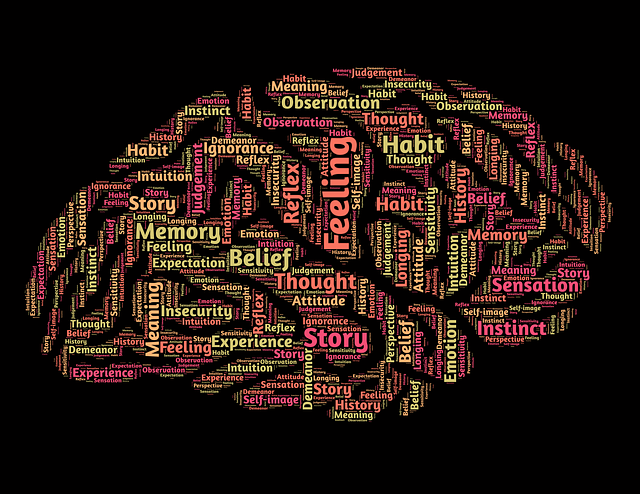by Suellen | Meeting the Challenges, Vision and Goals
You’ve decided to embark on a journey to grow and change. You don’t want to settle for status quo. You want your life to be significant to God and others.
Well, as you’ve probably learned already, changing your mindset isn’t an easy journey. It’s not going to be something you wake up one morning and just decide to do and get it over with. It’s a journey and there are going to be many obstacles on the way.
There are obstacles, but you can overcome them. You’re more likely to overcome them if you’re prepared for them, so here are a few of the ones you’re certain to face.
Take a deep breath and let’s look at some of them.
1.) The desire for instant gratification
All of us want our desires to be satisfied immediately, don’t we? This is true of all humans throughout time but is especially true for those of us in the modern world . We are used to drive-thrus and instant meals. We can often get whatever we want instantly, or almost instantly.
Cultivating a growth mindset isn’t like that. It’s going to take time and work, and a significant amount of each. You’re going to get frustrated with your lack of progress more than once, especially in the beginning. You’ll probably be tempted to quit. This is when you must exercise patience and keep going.
You’ll get there if you stick with it.
2.) Repeated failures
You’re going to fail at some of your goals and activities. Sometimes repeatedly. Everyone does.
No one likes failing, and the temptation to throw in the towel can be overwhelming, especially after multiple failures. Don’t give in. Take a break and regroup, then get back in there and try again.
3.) Other people’s opinions
You might not be expecting this one, but it’s probably going to crop up. No matter how detached and independent we are, humans have an innate desire to be liked and supported.
Some of your friends and family aren’t going to support you on your journey, or at least not on parts of it. Who this will be and when it happens might surprise you, so be ready for it.
This is why building a support system is so important. You need people who are guaranteed to support you no matter what when you undertake this journey.
4.) Your own brain
Human brains can be fickle things. No matter how much you want to change your mindset, your brain is going to throw up obstacles in the way. Probably multiple times and in places you wouldn’t expect. These obstacles will primarily come from limiting beliefs and fear. Expect them so you won’t be surprised.
Be prepared to reach out to your support system when it happens so you can get past the obstacle and move on with your journey.
Romans 12:2 (Passion Translation) Stop imitating the ideals and opinions of the culture around you, but be inwardly transformed by the Holy Spirit through a total reformation of how you think. This will empower you to discern God’s will as you live a beautiful life, satisfying and perfect in His eyes.
by Suellen | Meeting the Challenges, Success, Vision and Goals
Ok. So we’ve talked and talked. We’ve shared ways to increase your mindset – and not get stuck in a negative rut.
Now the question is: Is it worth it? All of that meditating on scripture. All of that changing routines, nutrition, exercise, and everything else we’ve discussed. Is it really worth all of that?
I would say, “Yes.” and a thousand times, “Yes!”
So what’s in it for you?
1.) This is the way to your Best Life.
, you’re going to be living your best life, the life you want to live, the one God has designed for you.
All of the hard work you put in and all of the activities you do in an attempt to grow your mindset are all about this one goal and guess what? They work. Pretty soon you’ll be saying hello to the life you know is God’s plan for you.
2.) You’ll have Improved Confidence
People with a positive, growth mindset are more confident than others. Working to change your mindset is going to improve your confidence from the start. As a Christian, you will realize that you are a child of God and He is with you every step of the way.
You will also appreciate the gifts He has given you, and you will have confidence in your ability to use those gifts.
3.) You’ll Experience Less Stress
Cultivating a growth mindset is going to decrease your stress levels and improve your resiliency. You will know that when things look tough, you can still work through your problems.
You’ll experience lower amounts of stress for the rest of your life. This will lead to a lower risk of heart disease, diabetes, and other negative effects of chronic stress. That leads to a longer life.
The benefits just cascade!
4.) You Will Lower Your Risk of Depression and Anxiety
Even if you suffer from depression or anxiety already, cultivating a growth mindset will help you move beyond it. Once you have worked on your mindset awhile, you’ll be less likely to experience depression or anxiety.
Everyone experiences crises from time to time. Yet even when these inevitable negative events happen, you’ll bounce back f faster than before.
5.) You’ll have Improved Relationships
One non-obvious benefit of changing your mindset is that it will improve your relationships. All of the other benefits combine to make you enjoy your friends and family more and make you a better person and a better friend.
The result is better relationships.
So there you have it. A short list of benefits from improving your mindset.
These are just a few of the benefits. The benefits of changing your mindset are innumerable and lifelong. These benefits are durable. They won’t disappear after a short while.
Once you’ve figured out how to do many of the things associated with growing your mindset, your life will continuously improve, and you’ll discover more blessings along the way.

by Suellen | Meeting the Challenges, Vision and Goals
Did you know that your amazing brain grows throughout your life? As long as you are alive your brain continues to learn new things and literally develop physically.
We have been talking about how to change your mindset. For a greater understanding, let’s look at how your brain functions – and why we can expect to change.
In the last posts we have been talking about changing your mindset on purpose. Indeed, it changes throughout life even if you don’t try to guide it. As you have new experiences, make new acquaintances, and learn new skills your mindset continues to grow.
That’s partly because of your amazing brain.
So let’s look at the “why” behind that. Why does it change on its own throughout life? Aren’t our brains through growing when we reach adulthood? How does this happen when things like strokes often can’t be recovered from?
Actually, the idea that our brains stop growing and changing was never correct. Scientists and doctors used to think this was the case, but they discovered differently when brain imaging technologies were developed. Your brain changes throughout your life just like every one of your other organs!
This discovery led directly to the concept of neuroplasticity, which means that the brain changes itself, both in structure and function, throughout your life. It adapts and modifies itself on an almost constant basis to new experiences and sensory inputs.
As an example, consider learning a new skill. When you learn something new, your brain creates new cells to hold the information and new connections to bind it together and connect it to the rest of your brain. These cells and connections become more numerous and more dense as you get better at the skill.
When you have done something one way for a long time, your brain has developed a mass of cells and connections. That’s why it’s harder to change well established habits.
The longer you’ve done something, the harder it is to change because of the amount of brain matter that’s devoted to doing it. That’s why it’s so hard to quit smoking after doing it for a decade, for example.
This is why an attempt to change long held mindsets take longer. It may even seem impossible, but it’s not. It just takes longer.
Since you never stop experiencing life, your brain never stops changing. The only time it stops making changes is when the area responsible for them becomes too damaged to function, such as after a major stroke or brain injury. Even then, researchers have found that the brain will sometimes respond to such an injury by rerouting connections around it!
Your brain is an amazing organ. It’s capable of doing far more than we give it credit for. You are also an amazing creature and with God’s help can do much more than you realize.
Don’t let outdated theories of brain function convince you that you can’t change your mindset and lead the life you want. You can do it.
Be patient and persistent. The power of your amazing brain is on your side.
P.S. A PLR Package to help you and your clients grow your mindset. Overcoming Limiting Beliefs.

by Suellen | Meeting the Challenges, Success, Vision and Goals
Do you want to try some new ways of cultivating a growth mindset?
These three activities are things you can try that will help you. Two can be done alone and one requires a partner. They’re all easy, free activities that will provide you with significant rewards.
1. Read Books on Mindset and Success
The number one book to read is the Bible. The Bible is filled with promises from God to help you along your journey. Psalm 139 is a great place to start. This whole psalm is about how special you are to God. How He has created gifts within you and plans for your days. Your faith rises when you think about the potential you have when God is directing and empowering your life.
Reading opens your mind and fosters growth. This is true for all forms of reading, from the humblest comic book to the greatest of the classics. Different types of books foster different kinds of growth, however; reading War and Peace won’t have the same effect as a book on growing roses.
Since you’re trying to cultivate a growth mindset, you want to read some books on the topic. You can also read books on success and personal development. Even books about famous people who failed on the way to success (such as Thomas Edison) are a good choice.
All of these will contribute to your mindset growth. Bonus: you can get most of these books for free from your local library (for print editions) or its app (for audiobook versions).
2. Role-Play Growth Mindset Scenarios
True confessions: I’m don’t like role playing so much, but some people really find this motivating, so here goes.
This one requires a partner, preferably someone who’s also working on their mindset so you can take turns being the one in the hot seat. You can do this either in person or via a video conferencing system.
Select some scenarios that are common obstacles to a growth mindset. Or some things you find difficult. You can find some online or make them up yourself. Examples include failing at a task or facing a performance review at work.
Take turns pretending the scenario is real and practice responding. This practice really helps some people.
3. Take a Break
You like this one. Right?
As counterintuitive as it sounds, taking a break may just be the reset you need. No brain can be “on” all the time. Take a break from whatever you’re doing – even 15 minutes will help – and relax or go do something fun.
Your break will not only put you in a better mood but turning off your conscious brain allows the unconscious brain to go to work. You might come back and suddenly find the answer you were looking for.
At least, you will be fresh and ready to tackle the problem again.
So be proactive. Challenge yourself with these and other activities to expand your mind.
You have a better future than you can imagine – as you continue to expand and grow your mindset.
P.S. You and Your clients will grow your faith with this PLR package. How to Grow Your faith

by Suellen | Meeting the Challenges, Vision and Goals
What do you crave when you are stressed? Do you crave donuts, potato chips or a big juicy hamburger? If so, you are not alone.
It’s what we call “emotional eating.”
In fact, you are probably aware of the affect your mindset has on nutrition. Being stressed, anxious, unhappy, or otherwise in a negative frame of mind often results in consuming less than ideal foods. This can become an addictive behavior and emotional eating is a growing problem.
Did you know that the opposite is also true? Your nutrition has a major impact on your mindset. What we eat provides fuel for our bodies and our brains. Eating too much or too little, or eating the wrong foods can cause hormone issues, blood sugar problems, stress, depression, poor mood, impaired decision making, and a negative mindset. It is a two-way street!
So let’s get down to it. What are the best foods to provide your brain with the best possible fuel? Let’s look at some of the best foods you should include in your diet and some of the worst.
The Best:
1.) Omega-3 Fatty Acids -These fatty acids are pure brain fuel. You can get them from fish, plant oils, nuts, and seeds.
2.) Leafy Greens -The vitamins and nutrients in these foods, such as Vitamin K and folate, are important for proper brain functioning. You can get good quantities from most leafy green vegetables, but especially from the brassicas (collards, kale, etc.), spinach, and colored lettuces.
3.) Berries -All brightly colored berries contain antioxidants and flavonoids, which promote a positive mindset, a better memory, and protect against disease.
4.) Eggs -Eggs are a great source of protein, folic acid, and B-vitamins, all of which are necessary to support both your mood and your brain health.
The Worst:
1.) Processed Foods – These foods contain large amounts of sugar, empty carbs, and preservatives, all of which create inflammation in the body and brain and reduce mood. These foods are also addictive.
2.) Sugar – In addition to the other negative effects excess sugar has on the body, it reduces thinking power, decreases mood, and can induce depression and fatigue. That’s not exactly a recipe for a great mindset!
3.) (Too much) Caffeine -The much-loved stimulant is good for you in small doses. It has a lot of benefits for your health and your mindset. The problem arises when you consume too much.
The stimulant effects of caffeine overpower the benefits and make you restless, irritable, unable to focus, and give you trouble sleeping. That makes you more likely to need caffeine the next day -another vicious cycle!
So when you plan what to eat, don’t just think of taste and appetite. Think of health and clarity of mind. The foods which flood your brain with good nutrients and keep a good blood flow to your brain will make a huge difference in your mood – and your overall mindset.














